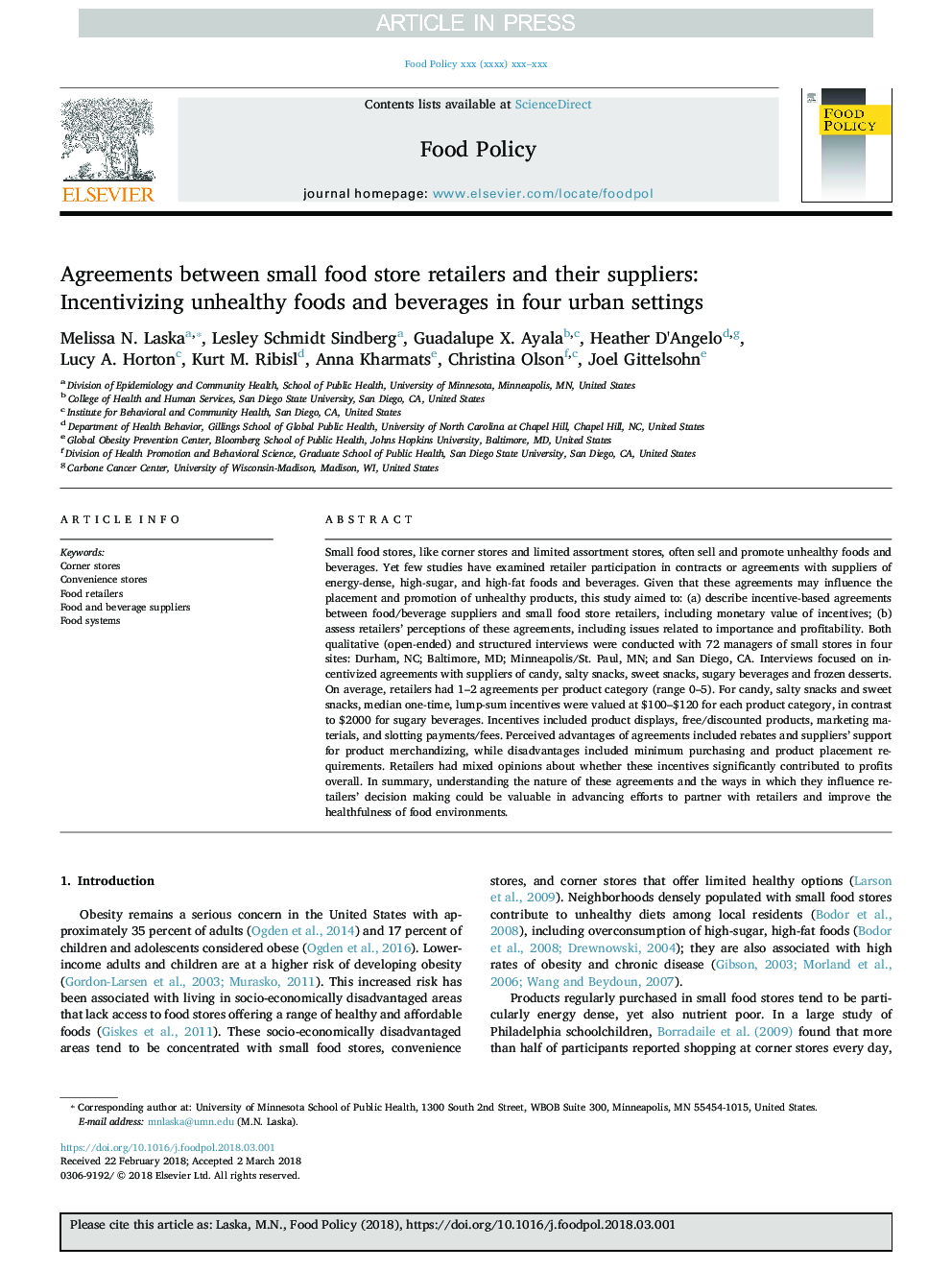| کد مقاله | کد نشریه | سال انتشار | مقاله انگلیسی | نسخه تمام متن |
|---|---|---|---|---|
| 8960839 | 1646438 | 2018 | 7 صفحه PDF | دانلود رایگان |
عنوان انگلیسی مقاله ISI
Agreements between small food store retailers and their suppliers: Incentivizing unhealthy foods and beverages in four urban settings
ترجمه فارسی عنوان
توافق نامه بین خرده فروشان خرده فروشی مواد غذایی و تامین کنندگان آنها: محرک غذاهای ناسالم و نوشیدنی ها در چهار مکان شهری
دانلود مقاله + سفارش ترجمه
دانلود مقاله ISI انگلیسی
رایگان برای ایرانیان
کلمات کلیدی
فروشگاه گوشه، فروشگاه رفاه، خرده فروشان مواد غذایی، تامین کنندگان مواد غذایی و نوشیدنی، سیستم های غذایی،
موضوعات مرتبط
علوم زیستی و بیوفناوری
علوم کشاورزی و بیولوژیک
دانش تغذیه
چکیده انگلیسی
Small food stores, like corner stores and limited assortment stores, often sell and promote unhealthy foods and beverages. Yet few studies have examined retailer participation in contracts or agreements with suppliers of energy-dense, high-sugar, and high-fat foods and beverages. Given that these agreements may influence the placement and promotion of unhealthy products, this study aimed to: (a) describe incentive-based agreements between food/beverage suppliers and small food store retailers, including monetary value of incentives; (b) assess retailers' perceptions of these agreements, including issues related to importance and profitability. Both qualitative (open-ended) and structured interviews were conducted with 72 managers of small stores in four sites: Durham, NC; Baltimore, MD; Minneapolis/St. Paul, MN; and San Diego, CA. Interviews focused on incentivized agreements with suppliers of candy, salty snacks, sweet snacks, sugary beverages and frozen desserts. On average, retailers had 1-2 agreements per product category (range 0-5). For candy, salty snacks and sweet snacks, median one-time, lump-sum incentives were valued at $100-$120 for each product category, in contrast to $2000 for sugary beverages. Incentives included product displays, free/discounted products, marketing materials, and slotting payments/fees. Perceived advantages of agreements included rebates and suppliers' support for product merchandizing, while disadvantages included minimum purchasing and product placement requirements. Retailers had mixed opinions about whether these incentives significantly contributed to profits overall. In summary, understanding the nature of these agreements and the ways in which they influence retailers' decision making could be valuable in advancing efforts to partner with retailers and improve the healthfulness of food environments.
ناشر
Database: Elsevier - ScienceDirect (ساینس دایرکت)
Journal: Food Policy - Volume 79, August 2018, Pages 324-330
Journal: Food Policy - Volume 79, August 2018, Pages 324-330
نویسندگان
Melissa N. Laska, Lesley Schmidt Sindberg, Guadalupe X. Ayala, Heather D'Angelo, Lucy A. Horton, Kurt M. Ribisl, Anna Kharmats, Christina Olson, Joel Gittelsohn,
